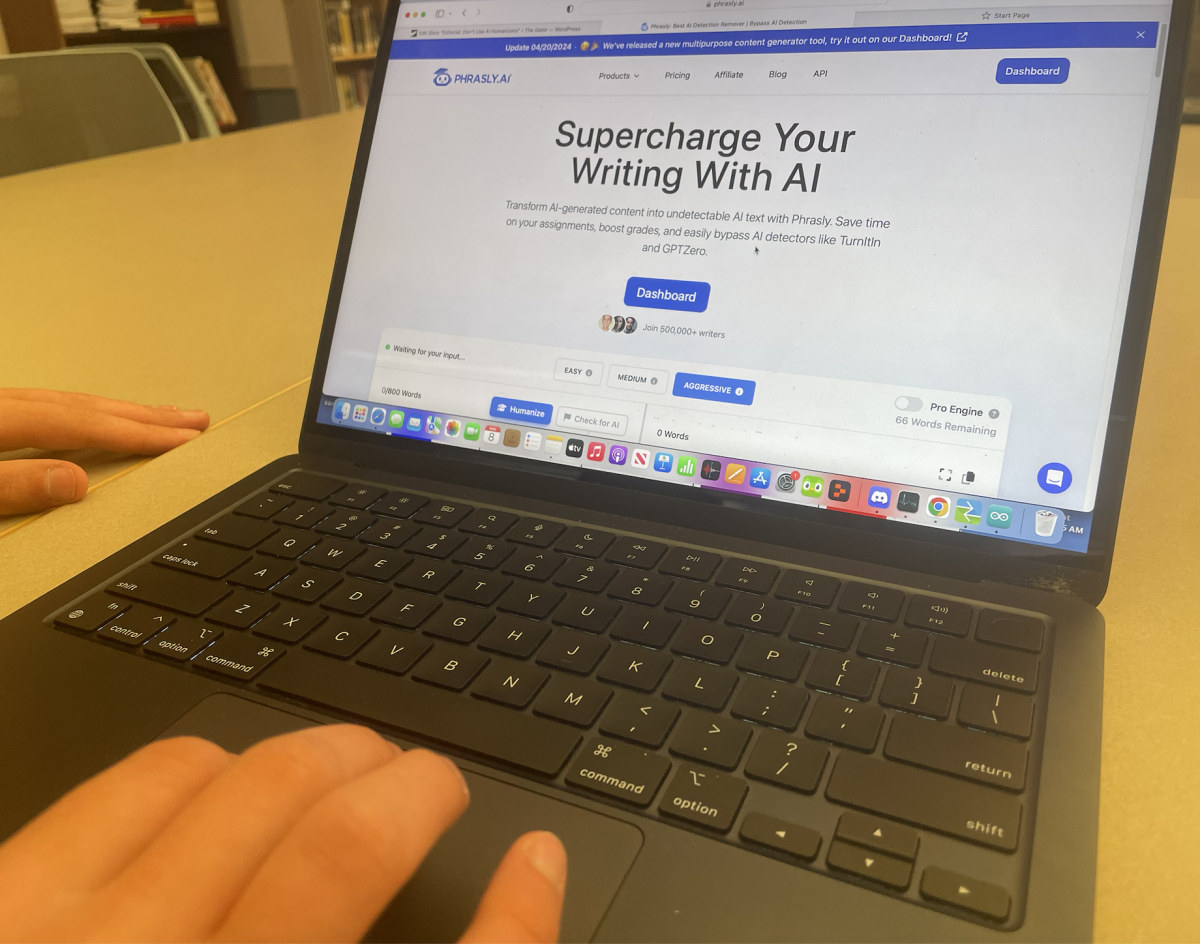While educators are tackling the unethical use of AI-generated content, another mighty cheat-code has quietly sprouted from the dark: AI humanizers.
Upon typing in the keyword “AI humanizers” into Google, numerous platforms appear, including undetectable.ai, which promises that it’s “built to bypass AI algorithms and ensure that your writing remains undetectable to AI detectors.”
“I’ve used AI to study for tests and it can be very helpful to facilitate learning in academically honest ways, but using AI humanizers and turning whatever it produces as your own work crosses the line,” Stephanie Altschul ’25 said. “We go to a school that prioritizes individual growth and writing so much, and it’s so important that we’re able to practice the skills ourselves.”
Even with AI humanizers, Upper School Dean of Students Paul Murray says that it’s relatively easy to detect computer-generated content.
“We know you as writers, as people, as thinkers,” Murray said. “It’s pretty easy for us to detect, even if a student is using a humanizer. The thing is, even if you read the nonsense that comes out of those things, it’s so easy to know that they’re just not coming from a student. So, are we going to miss it every once in a while? Of course we are. But when we catch it, you know, we will catch it and we will confront students—and the conversation is pretty unpleasant.”
Upper School History and Journalism teacher David Cutler sympathizes with students, who he said are increasingly tempted to cut corners due to savvy marketing campaigns funded by investors primarily focused on profits, with little regard for ethical considerations.
“It takes integrity to avoid using AI humanizers, but I remain confident that students here care more about learning and the time and effort that goes into it,” Cutler said, who has also written about technology and academic honesty for multiple platforms. “At the same time, I’m also enraged by these sleazy tech companies, which promote the destructive notion that taking shortcuts is not merely permissible but also clever. It’s disgusting.”
Phrasly.ai is particularly brazen, Cutler said, with a social media video advertisement encouraging students to cheat.
“We’re at an important juncture in education where technologies are transforming learning, and the need for academic integrity is more critical than ever,” Annie Chechitelli, the Chief Product Officer of Turnitin, said in a press release. “Everyone in education is looking for resources to enable them to perform at their best, and technologies, including our AI writing detection feature, help advance learning without sacrificing academic integrity.”
Another comprehensive study by Tyton Partners, a consulting firm, supported by Turnitin, reveals that the use of generative AI in higher education has “expanded significantly over the last six months.”
“Half of students are regular users of [AI generated content], putting higher education student adoption into the late majority on the adoption curve,” the study said.
Turnitin is aware of tools known as “text-spinners,” which paraphrase content to evade AI detection, according to Namrata Nanda, the company’s Senior Product Marketing Manager. In December, Turnitin updated its software to detect such alterations, Nanda noted.
“AI-generated text that has been further paraphrased using word-spinners or paragraphing tools can also now be detected,” Nanda said in a video for Turnitin Summit, an on-demand event available to customers from until May 1. “We heard that a lot of students were using text-spinners to mask the AI-generated content to avoid detection. So, now with this addition capability, what’s going to happen, or what’s going to happening, is it’s deterring students from using AI-generated text anyways. It’s preventing them for that AI misconduct, really.
Still, Cutler said that as an experiment, he was easily able to fool Turnitin’s detection using a variety of AI-humanizers.
“I really appreciate what Turnitin is trying to do, and it can’t be easy to keep up with quickly evolving technology,” Cutler said. “But the company seems to have a long way to go before its software can consistently and accurately detect content paragraphed by AI humanizers, or what they call text-spinners.”
Editors’ note: This article was updated Monday, April 29 at 8:44 a.m. to include insight from Turitin’s Senior Product Marketing Manager Namrata Nanda, followed by history teacher David Cutler’s reaction. Cutler also advises The Gator.























































